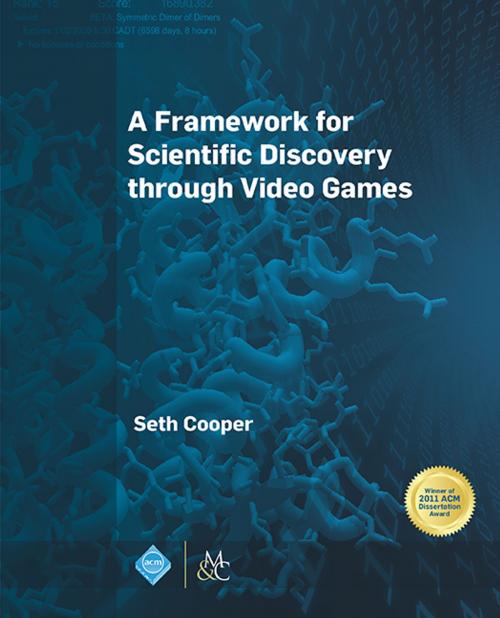A Framework for Scientific Discovery through Video Games
Nonfiction, Computers, Entertainment & Games, Game Programming - Graphics, Advanced Computing, Computer Science| Author: | Seth Cooper | ISBN: | 9781627055062 |
| Publisher: | Association for Computing Machinery and Morgan & Claypool Publishers | Publication: | July 1, 2014 |
| Imprint: | ACM Books | Language: | English |
| Author: | Seth Cooper |
| ISBN: | 9781627055062 |
| Publisher: | Association for Computing Machinery and Morgan & Claypool Publishers |
| Publication: | July 1, 2014 |
| Imprint: | ACM Books |
| Language: | English |
As science becomes increasingly computational, the limits of what is computationally tractable become a barrier to scientific progress. Many scientific problems, however, are amenable to human problem solving skills that complement computational power. By leveraging these skills on a larger scale---beyond the relatively few individuals currently engaged in scientific inquiry---there is the potential for new scientific discoveries. This book presents a framework for mapping open scientific problems into video games. The game framework combines computational power with human problem solving and creativity to work toward solving scientific problems that neither computers nor humans could previously solve alone. To maximize the potential contributors to scientific discovery, the framework designs a game to be played by people with no formal scientific background and incentivizes long-term engagement with a myriad of collaborative or competitive reward structures. The framework allows for the continual coevolution of the players and the game to each other: as players gain expertise through gameplay, the game changes to become a better tool. The framework is validated by being applied to proteomics problems with the video game Foldit. Foldit players have contributed to novel discoveries in protein structure prediction, protein design, and protein structure refinement algorithms. The coevolution of human problem solving and computer tools in an incentivized game framework is an exciting new scientific pathway that can lead to discoveries currently unreachable by other methods.
As science becomes increasingly computational, the limits of what is computationally tractable become a barrier to scientific progress. Many scientific problems, however, are amenable to human problem solving skills that complement computational power. By leveraging these skills on a larger scale---beyond the relatively few individuals currently engaged in scientific inquiry---there is the potential for new scientific discoveries. This book presents a framework for mapping open scientific problems into video games. The game framework combines computational power with human problem solving and creativity to work toward solving scientific problems that neither computers nor humans could previously solve alone. To maximize the potential contributors to scientific discovery, the framework designs a game to be played by people with no formal scientific background and incentivizes long-term engagement with a myriad of collaborative or competitive reward structures. The framework allows for the continual coevolution of the players and the game to each other: as players gain expertise through gameplay, the game changes to become a better tool. The framework is validated by being applied to proteomics problems with the video game Foldit. Foldit players have contributed to novel discoveries in protein structure prediction, protein design, and protein structure refinement algorithms. The coevolution of human problem solving and computer tools in an incentivized game framework is an exciting new scientific pathway that can lead to discoveries currently unreachable by other methods.















